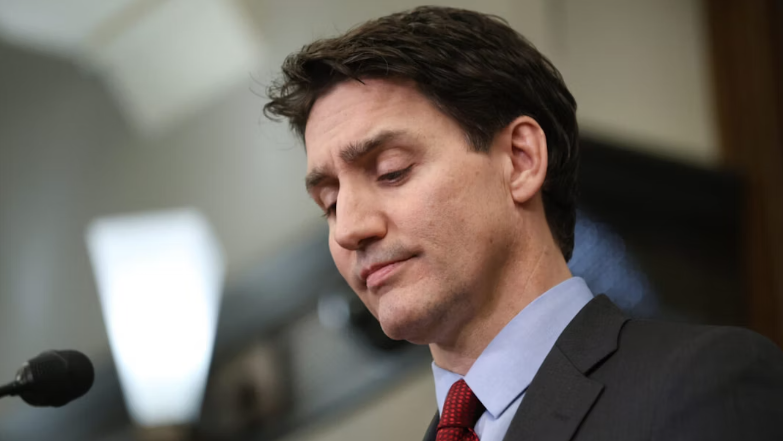Trudeau Caves To Trump: Canada To ‘Ensure’ Border Security After Tariff Threats
Canadian Prime Minister Justin Trudeau has conceded to U.S. demands for stronger border security following pressure from President Donald Trump. The agreement comes after Trump imposed a 25% tariff on Canadian imports, citing inadequate measures to curb illegal immigration and drug trafficking across the northern border.
Trump’s Tariff Threats Force Action
The decision marks a major shift in Canada’s border policies. After weeks of escalating tensions, Trudeau agreed to a comprehensive $1.3 billion border security plan, which includes deploying 10,000 Canadian troops to patrol the U.S.-Canada border, enhancing surveillance technology, and increasing collaboration with U.S. law enforcement.
“President Trump made it clear that securing the border isn’t optional,” a senior White House official stated. “Canada understood the stakes and acted.”
Key Elements of the Agreement
- 10,000 Canadian Troops Deployed: The deployment will focus on preventing the illegal transport of drugs, primarily fentanyl, which has been a major concern for U.S. authorities.
- Creation of a ‘Fentanyl Czar’: Trudeau has appointed a top official to oversee efforts aimed at disrupting drug trafficking networks.
- Joint U.S.-Canada Task Force: A newly established strike force will target organized crime and drug cartels operating between the two nations.
- Stricter Screening for Illegal Migrants: Canadian officials will coordinate with U.S. Customs and Border Protection to detain and deport migrants attempting to enter the U.S. illegally from Canada.
Trudeau Under Domestic Pressure
While Trudeau publicly described the agreement as a “mutual effort to ensure cross-border safety,” Canadian media has framed it as a political defeat. His concessions have drawn criticism from domestic opposition leaders, who accuse him of giving in to U.S. pressure without gaining any significant concessions in return.
Political analysts say Trudeau had little choice given the economic impact of Trump’s tariffs. The initial round of tariffs led to supply chain disruptions and increased costs for Canadian exports, particularly in the auto and steel industries. The pressure from major Canadian business leaders was also a factor in Trudeau’s swift reversal.
I just had a good call with President Trump. Canada is implementing our $1.3 billion border plan — reinforcing the border with new choppers, technology and personnel, enhanced coordination with our American partners, and increased resources to stop the flow of fentanyl. Nearly…
— Justin Trudeau (@JustinTrudeau) February 3, 2025
Trump’s Response: Tariffs Paused, but Not Lifted
President Trump has agreed to pause the tariffs for 30 days, providing Canada with time to implement its commitments. However, he made it clear that the pause is conditional on results.
“If we see progress, we’re willing to work with them. But if they fall short, the tariffs will come back stronger than ever,” Trump said during a press conference. “We’ve seen too much talk in the past. This time, we need action.”
Tackling Fentanyl and Illegal Crossings
A major driver behind the agreement is the U.S. effort to combat the ongoing fentanyl crisis, much of which is believed to enter the country through border vulnerabilities. The joint strike force aims to target and dismantle supply chains linked to Chinese and Mexican cartels using Canada as a transit point.
Additionally, U.S. officials are monitoring Canada’s commitment to detaining and deporting illegal immigrants who attempt to use Canada as a gateway into the U.S. Homeland Security Secretary Kristi Noem praised the agreement but warned that the U.S. would hold Canada accountable for any lapses.
Broader Implications for U.S.-Canada Relations
This development highlights President Trump’s effective use of economic pressure to achieve security objectives, sending a clear message to other trade partners: meet U.S. demands or face consequences. While Canada avoided immediate economic pain, analysts warn that the 30-day window may not be enough to resolve long-standing border issues.
As negotiations continue, the Trump administration is watching closely to ensure Canada delivers on its promises. For now, the tariff threat has been neutralized, but the future of U.S.-Canada relations depends on Trudeau’s ability to implement the agreed-upon security measures.
Trump summarized the outcome bluntly: “America’s security comes first. No exceptions.”

